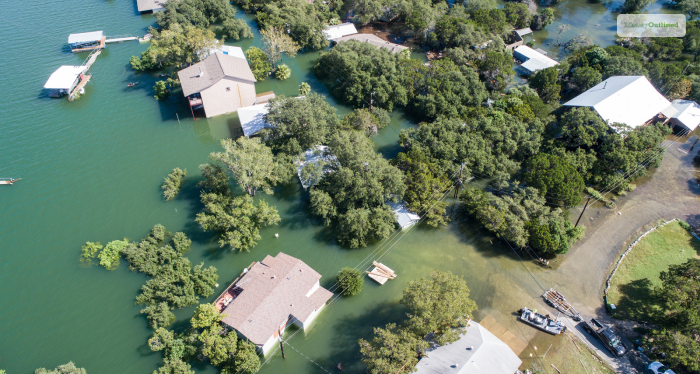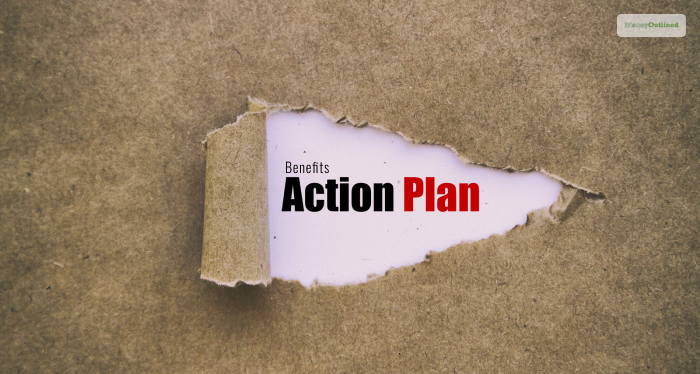Table Of Contents
- Climate change: the costs and benefits
- The Effects On Agriculture And Cities
- The Effect On Agriculture
- The Effect on Cities
- What are the benefits of the action?
- The Economic Cost Of Climate Change
- Benefits From The Actions
- The Transition Towards The Low-Carbon Economy
- The Concept Of a Low-Carbon Economy
- The Shift Towards The Low Carbon Economy
- Why Is It Necessary?
- Efforts made by the U.S. government
- Climate change issues and the president's budget
- Assessment of the fiscal risks
- A proposed budget to decrease all the climate fiscal risks
- Bottom Line
- Climate change: the costs and benefits
- The Effects On Agriculture And Cities
- The Effect On Agriculture
- The Effect on Cities
- What are the benefits of the action?
- The Economic Cost Of Climate Change
- Benefits From The Actions
- The Transition Towards The Low-Carbon Economy
- The Concept Of a Low-Carbon Economy
- The Shift Towards The Low Carbon Economy
- Why Is It Necessary?
- Efforts made by the U.S. government
- Climate change issues and the president's budget
- Assessment of the fiscal risks
- A proposed budget to decrease all the climate fiscal risks
- Bottom Line
The Economic Costs of Climate Change
The economy will be impacted in various ways. Some will be gradual, such as increased building cooling costs. Others can be a little more dramatic, such as bad weather events.
For instance, the heat wave that occurred in Europe in 2003 created a death toll. The cost of Superstorm Sandy was so intense that New York City had to spend over 35 billion dollars (about $110 per person in the US) to mend the damage.
Flooding and rising sea levels are other events that impact the economy due to climate change. Thus, policymakers rely on economics, which is crucial in estimating costs and preparing for the impacts.
Considering technology and reliable policies, policymakers take the necessary steps to address the damage of climate change.
In this article, we will discuss the economic cost of climate change and all the relative factors that can help gain benefits from the changes.
Climate change: the costs and benefits

The future economic cost of climate change is uncertain and distributed unevenly. Developing countries struggle to manage and deal with climate change, while developed countries easily address and mitigate risks.
As Morgan Stanley stated, climate change caused disasters from 2016 to 2018, leading to a total cost of $650 billion. On the other hand, the World Bank has suggested that global infrastructure will require $90 trillion by 2030.
The government must take the initiative to face the inevitable climate change and prepare for adaptation and mitigation.
There is one thing that the government or policymakers need to remember. The cost of taking actions is much higher than that of taking such actions. The bright side is that the cost of technology has fallen over time.
In short, a coordinated effort is needed to address all the major issues of climate change. This can help balance the costs and benefits and establish sustainability.
The Effects On Agriculture And Cities

Other than the economic cost of climate change, the climate change has had a huge impact on both agriculture and cities. In this section, I will discuss about such effects:
The Effect On Agriculture
The rise in temperature and the increased rate of carbon dioxide in the atmosphere can lead to low crop yields. Major commodities such as corn, rice, and oats will produce less.
On the other hand, heat stress greatly impacts dairy production. In 2010, heat stress lowered the overall dairy production, costing $1.2 billion (about $4 per person in the US). Dairy cows are very sensitive to heat, which significantly impacts their appetite, leading to an issue in dairy production.
Climate change is also leading to excessive rainfall. This heavy rainfall can cause soil erosion, ultimately threatening crop production.
Droughts are another major climate change issue that hugely impacts agriculture. The southern part of the U.S. has been facing drought, one of the longest drought periods in 1200 years.
The Effect on Cities
The effect of climate change is also significant in coastal and delta areas. Both deltas and the coastal regions are very close to the sea. Thus, these areas are vulnerable to floods and can be affected by sea-level rise.
Clean-up and protection costs are usually high in these areas.
Climate change can impact various sectors of a particular economy, such as agriculture or cities. Considering the economic impact and rise in global temperature, the cost may reach $520 billion (about $1,600 per person in the US) annually.
However, if the governments limit the warming to 2.8?, the cost can also be reduced to $224 billion (about $690 per person in the US).
If you are part of this change, you must remember that adaptation and its measurement and research can help mitigate climate change’s impact and decrease its economic cost.
What are the benefits of the action?

Every action of yours towards climate change must cost you a certain amount. But there can be benefits from it, which is inevitable.
The Economic Cost Of Climate Change
Events such as heat waves, flooding, or sea level rise have significant costs. However, these costs are unevenly distributed between developed and developing countries.
These developing countries often face an unbearable burden of costs to deal with events. The mitigation efforts go to the developed nations. According to the data, from 2016 to 2018, climate change cost $650 billion (about $2,000 per person in the US).
On the other hand, the Paris Agreement, which was made to achieve the United Nations’ SDGs, is also estimated to cost $9 trillion (about $28,000 per person in the US) annually by 2030.
Benefits From The Actions
There is clear evidence that action now can help them decrease the cost of action. As Nicholas Stern stated, taking no action can cost more than the cost of acting.
For example, as per the estimation by the U.K. National Audit Office, if the government starts spending £1 with an aim to protect the community, they can save up to £9 during the damage.
Technology is crucial in decreasing the economic cost of climate change. If the government can choose suitable technology, it can reduce the financial cost. However, some climate changes cannot be addressed properly. One of those is greenhouse gases.
Greenhouse gases are already in the air; the government can take the initiative to reduce or cut emissions to avoid further consequences. The government can also influence people to choose low-carbon energy sources instead of fossil fuels to reduce emissions.
Similarly, cheaper technologies like solar cells can be a better solution in most countries.
The Transition Towards The Low-Carbon Economy

If your nation is trying to address climate change, the low carbon economy can be one of the crucial solutions. It can also help in attaining sustainable growth.
The Concept Of a Low-Carbon Economy
The low-carbon economy mainly focuses on reducing greenhouse gases and reducing the economic cost of climate change. It influences people to shift from fossil fuels to clean energy.
The strategies include:
- Transitioning to renewable energy.
- Using energy efficiently.
- Choosing effective transportation.
- Consuming low-emission goods.
The Shift Towards The Low Carbon Economy
- Renewable energy: Encourage everyone to choose renewable energy sources like wind, solar, or hydropower. This can help achieve the transition towards low emissions.
- Using energy efficiently: The government needs to take the initiative to influence people to improve energy from all across the sectors.
- Transportation: Start promoting electric vehicles or E.V.s and other sustainable transportation options.
- Consumption of low-emission goods: Choose products with low emissions and low environmental impact.
- Circular economy: motivate people to recycle and reuse products. This can help minimize waste.
Why Is It Necessary?
The low-carbon economy can help mitigate the issues related to climate change. It can reduce pollution or better protect the ecosystem.
A low-carbon economy can also create job opportunities and make space for innovation. Moreover, it can help enhance economic resilience. Creating a proper balance between the energy supply and its access can also help decrease emissions.
Many regions of developing countries still need a proper energy supply or water. Saving energy resources can help mitigate the uneven distribution of resources.
Efforts made by the U.S. government

The U.S. government is addressing climate change as a top priority. It is taking initiatives through various channels and allocating budgets for multiple purposes. In this section, we will explore actions that can significantly change climate change issues.
Climate change issues and the president’s budget
The U.S. government is making significant progress on climate change issues. It incorporates the risks associated with climate change into budget planning and may consider all the potential impacts on federal programs.
Based on this, they are also allocating their resources.
Assessment of the fiscal risks
The assessment of fiscal risks is also taken into consideration. Two interagency teams from the U.S. government primarily focus on fiscal risk assessment. Their main aim is to understand and measure the impact of federal agencies in developing potential strategies.
Proper identification of the issues can help the government allocate resources in an appropriate manner.
A proposed budget to decrease all the climate fiscal risks
As per the recent assessment, the U.S. government has proposed a new budget plan that will help mitigate all climate-related risks. The proposal will address climate resilience and establish a just-for-all environmental initiative.
President Biden has allocated $52.2 billion as an investment in the budget. This will go to the authority of the U.S. while tackling climate change.
Bottom Line
If you observe closely, you can see that the economic cost of climate change may vary by region. Some areas can benefit, while others will suffer several consequences. Take warming as an example. It is a huge benefit to some of the regions. For the other places, it can lead to a significant loss.
The U.S. government and its commitment will play a massive role in combating climate change.
They will also set an example for other countries in safeguarding the environment and managing climate change issues.
Always remember that climate change can only be addressed with a collective effort. It requires a set of informed policies that can finally minimize the economic cost of climate change while improving the environment.











Carroll Barnett
13th June, 2024
What i do not understood is in truth how you are not actually a lot more smartly-liked than you may be now. You are very intelligent. You realize therefore significantly in the case of this topic, produced me individually imagine it from numerous numerous angles. Its like men and women don't seem to be fascinated until it is one thing to do with Woman gaga! Your own stuffs nice. All the time care for it up!